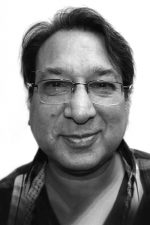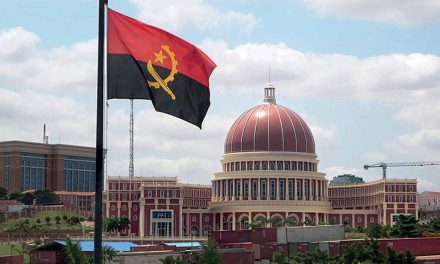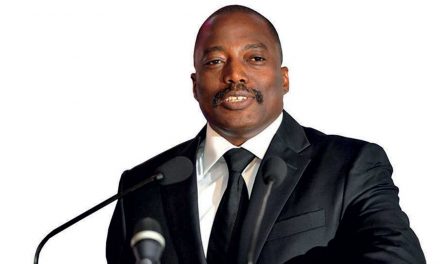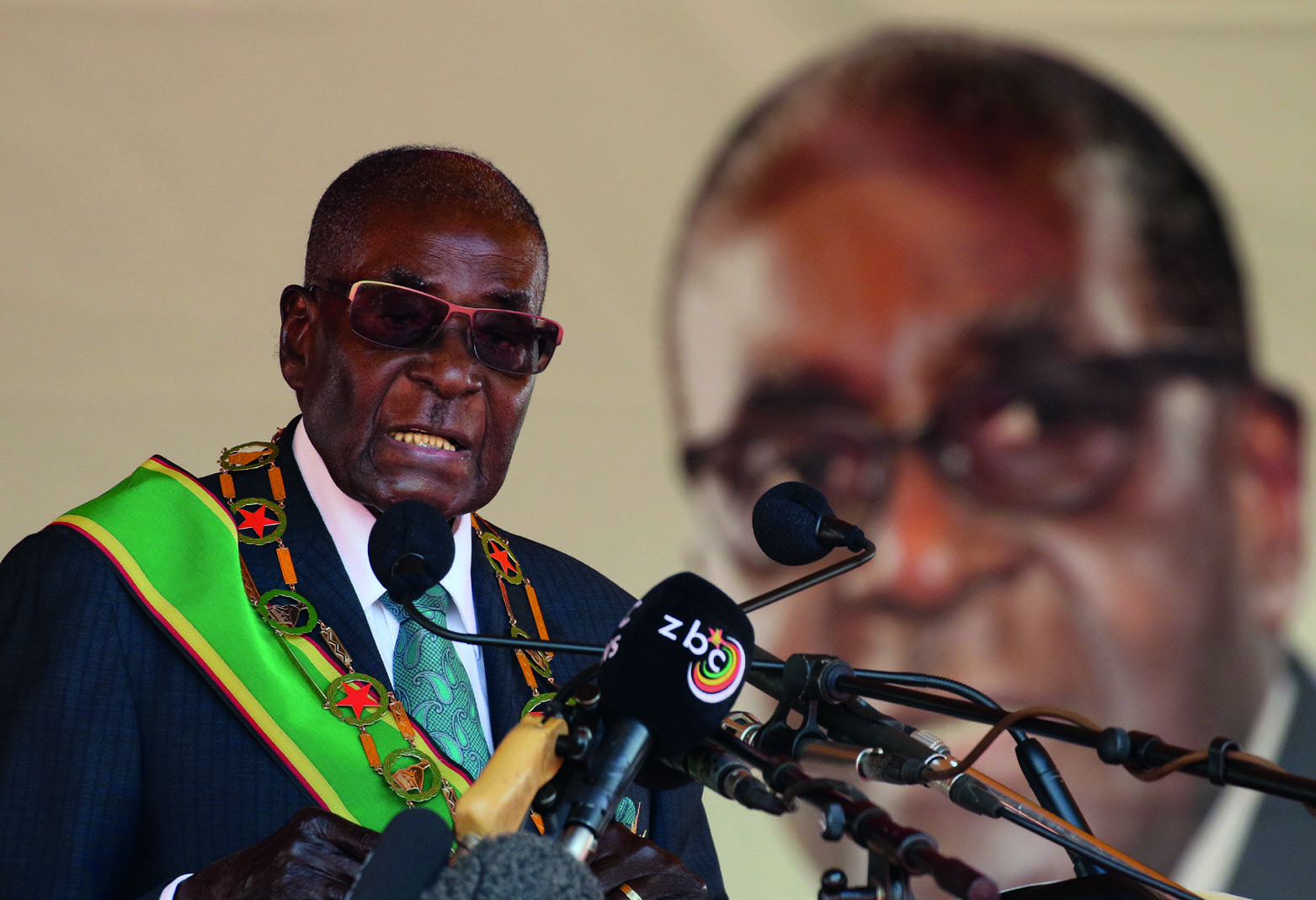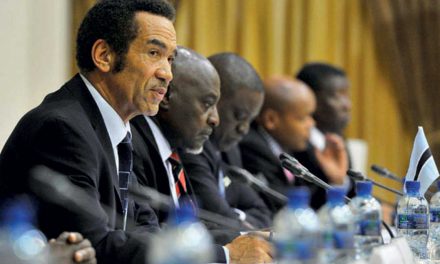Most African countries today are ruled by presidents. Some have notorious profiles as tyrants, while others enjoy respect as democrats. This compilation of brief overviews of their careers shows who’s who.
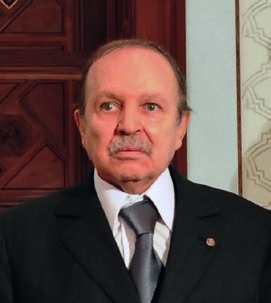
ALGERIA: Abdelaziz Bouteflika (b 1937) in Oujda, he joined the military wing of the National Liberation Front (FLN) in 1957. He became youth minister and minister of foreign affairs in the first post-independence government, led by Ahmed Ben Bella, but took part in the military coup that overthrew Ben Bella in June 1965
Bouteflika was president of the UN general assembly in 1974. Becoming leader of the FLN in 1989, he was appointed minister of state. He won the 1999 presidential elections as an independent, though other candidates withdrew, alleging fraud. In 2000 he was African Union president. Constitutional amendments allowed him to run in the 2009 and 2014 elections, which he won. He has suffered two strokes, the first in April 2013, after which he was rarely seen in public.
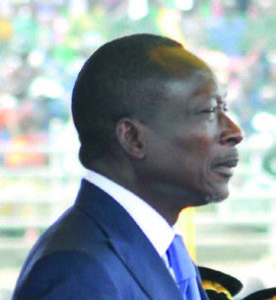
BENIN: Patrice Talon (b 1958) studied science at the University of Dakar in Senegal and civil aviation in France. Known as the “King of Cotton”, he financed Thomas Boni Yayi’s victorious 2006 and 2011 campaigns. Fled to France in 2012 after he was accused of embezzlement.
His relations with Yayi broke down and he was accused of plotting to kill the leader. Pardoned in 2014, he ran as an independent in the 2016 presidential elections. Defeated Prime Minister Lionel Zinsou, who was backed by Yayi. Vowed to introduce constitutional reforms, especially a measure to limit presidential rule to a single five-year term.
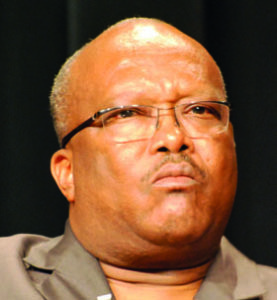
BURKINA FASO: Roch Marc Christian Kaboré (b 1957) attended school in the capital from 1968 to 1975; earned a Master’s degree in economics at the University of Dijon. Worked as a banker in the 1980s. From 1992 he held ministerial posts under Blaise Campaoré, and was appointed prime minister in 1994.
Elected president of the National Assembly in 2002, and re-elected in May 2007. Campaoré forced from office in October 2014. A transitional government was put in place and an attempted coup was put down in September 2015. Kaboré sworn in as president on 29 December 2015, the first elected civilian head of state in 50 years. Has pledged to put social democratic policies in place.
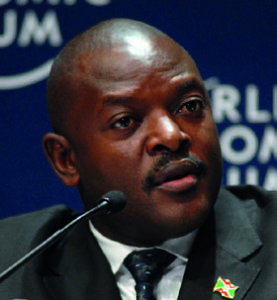
Photo copyright Eric Miller / World Economic Forum 2008 Africa Summit, Cape Town, 2008
BURUNDI: Pierre Nkurunziza (b 1963) in Bujumbura. His father was a governor of two provinces before he was killed in ethnic violence in 1972. Studied at the University of Burundi. Joined the armed wing of a Hutu exile group, the National Council for the Defense of Democracy (CNDD).
Sentenced in 1998 to death in absentia by a Burundi court for his rebel activities. Signed a peace accord with President Domitien Ndayizeye in 2003. Joined the Ndayizeye cabinet the next year. Stood as a presidential candidate in 2005 and sworn in on 25 August. Has been accused of repressing dissent and the media.
Stood for a third term in 2015, in violation of the constitution. Protesters took to the streets, and more than 300 were killed. The EU suspended aid to the country in 2016.
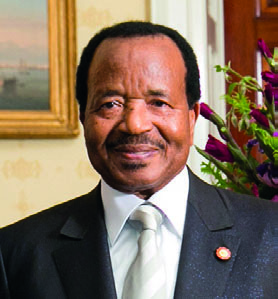
CAMEROON: Paul Biya (b 1933) in Mvomeka’a. Studied law, politics and international relations at the University of Paris. From 1964 he held several cabinet posts and was appointed advisor in the presidency, and prime minister in 1975. Succeeded the first post-independence president, Ahmadou Ahidjo, in 1983.
Won the 1984 and 1988 elections, after which he placed most of the country under military control. Narrowly re-elected in 1992 and in 1997 in polls marred by irregularities. Cameroon declared the most corrupt country in Transparency International’s Corruption Perceptions Index in 1998 and 1999. In 2008, a constitutional amendment abolished presidential term limits, allowing Biya to fight and win the 2011 election.
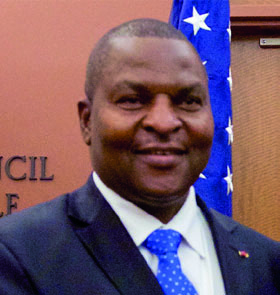
CENTRAL AFRICAN REPUBLIC: Faustin-Archange Touadéra (b 1957) in Bangui. Graduated from Lille University of Science and Technology in 1986 with a doctorate in mathematics. Lecturer in mathematics and administrator at University of Bangui from 1987 to 1992. In 2004, earned a second mathematics PhD from the University of Yaounde, Cameroon. Vice-chancellor of the University of Bangui in May 2004.
Instrumental in the launch of the Euclid Consortium, a scientific project to explore space. Appointed prime minister by President François Bozizé in 2008. Dismissed as prime minister on 12 January 2013 when Bozizé overthrown by the Muslim Seleka rebels. Won the December 2015 elections and sworn in as president on 30 March 2016. Faced with the task of disarming Seleka and anti-Blaka forces and reintegrating the combatants into mainstream society.
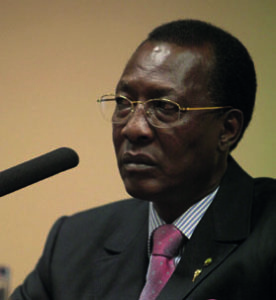
CHAD: Idriss Déby (b 1952) has a military background and was instrumental in Hissene Habré’s ascent to power in 1982. Seven years later he was accused of plotting to overthrow Habré and fled to Sudan from where he conducted a successful armed campaign aimed at overthrowing the N’Djamena regime.
By late 1990 Habre fled and Déby took over as president, promising multi-party democracy. A new constitution was approved in 1996 and in the first multi-party presidential elections in Chad’s history. Déby was re-elected president in polls marred by accusations of fraud and boycotts. He is currently serving his fifth term.
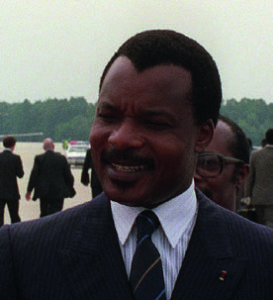
CONGO: Denis Sassou-Nguesso (b 1943) underwent military training in Algeria and France before being appointed commander of military forces in Brazzaville. After joining the ruling Congolese Labour Party in 1970, he became Minister of Defence in 1975. After President Marien Ngouabi was assassinated in 1977, Joachim Yhombi-Opango took power, but was forced to resign in February 1979.
In March the party appointed Sassou president of the oil-producing republic and head of the party. Regarded as deeply corrupt, Sassou owns more than 20 luxury properties in France and reportedly spent $1.3 million on shirts and suits between 2005 and 2011.
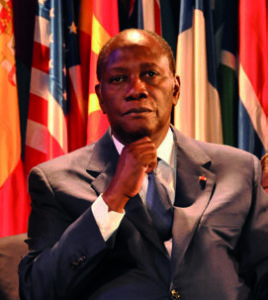
CȏTE D’IVOIRE: Alassane Ouattara (b 1942) obtained a BSc in Business Administration from the Drexel Institute of Technology in Philadelphia before getting a Masters (1967) and PhD (1972) at the University of Pennsylvania in the United States. He worked at the International Monetary Fund in 1968 and moved to the Central Bank of West African States in 1973, where he became vice-governor. He was appointed by President Felix Houphouët-Boigny to chair a special commission on economic recovery in April 1990, and later, as Prime Minister, he embarked on an austerity programme. In 2010, a wave of violence swept through the country after Ouattara defeated Laurent Gbagbo who was arrested in 2011. Ouattara was was re-elected in 2015 with 84% of the vote.
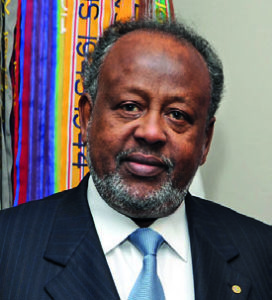
DJIBOUTI: Ismail Omar Guelleh (b 1946) was a civil servant and head of the secret police after Djibouti gained independence from France in 1977. He was elected President in 1999 and allowed US troops into Djibouti from 2002 to use the country’s strategic location in the US campaign against terrorism.
Guelleh was re-elected in 2005, getting 100% of the vote after the opposition boycotted the poll, and again in 2011 in another election boycotted by the opposition. His UMP coalition won two-thirds of the seats in parliamentary elections in February 2013, and in the 2016 elections he won 80% of the vote.
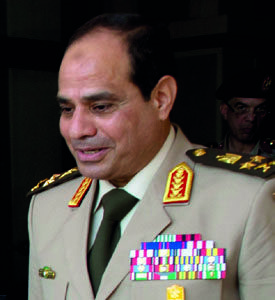
EGYPT: Abdel Fattah al-Sisi (b 1954) graduated from the Egyptian Military Academy in 1977. He was a member of the Supreme Council of the Armed Forces (SCAF) when Hosni Mubarak was ousted in early 2011. New President Mohamed Morsi, promoted Sisi to head the SCAF.
Morsi refused demands for an early election and was deposed by the military in July 2013. In March 2014 Sisi announced he would resign from the military and stand for presidential elections, which he won. He was sworn into office on June 8 2014.
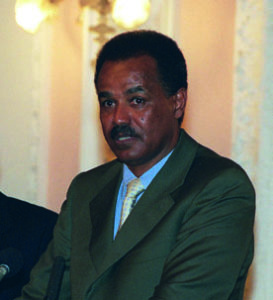
ERITREA: Isaias Afwerki (b 1946) studied engineering at the University of Addis Ababa, but left in 1966 to join the Eritrean Liberation Front (ELF) in Sudan, completing his military training in China. During the Ethiopian revolution in 1974 Afwerki led the Eritrean People’s Liberation Front, a breakaway from the ELF.
When the EPLF defeated the Ethiopian army in May 1991 after 30 years of war, Afwerki headed the provisional government as the country broke away from Ethiopia. Eritreans voted in favour of independence in the referendum of April 1993, and Afwerki was elected president by the National Assembly. In May 1993 he officially proclaimed Eritrea’s independence.
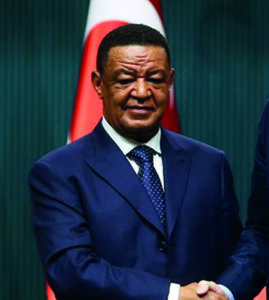
ETHIOPIA: Mulatu Teshome Wirtu (b 1955) in Arjo. Studied political economy and earned a doctorate in international law at Peking University. In the mid-1990s he was deputy minister of economic development and cooperation and appointed minister of agriculture in 2001. He was Speaker of the House of Federation from 2002 to 2005. He served as Ethiopia’s Ambassador to China, Japan, Turkey and Azerbaijan. He was elected as president of Ethiopia by a unanimous parliamentary vote on 7 October 2013.
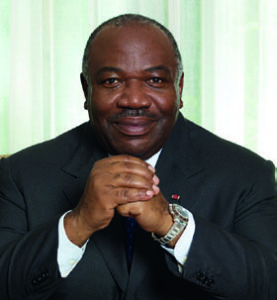
GABON: Ali Bongo Ondimba Ali Bongo’s father, Omar Bongo, was president of Gabon from 1967 to 2009. Bongo junior studied law before entering politics, and served as minister of foreign affairs and defence, and was voted to the National Assembly. A few months after his father’s death, elections were held which Bongo succesfully contested against many rivals, including his sister.
He sought to distance himself from his father’s regime, especially the patronage system, and has tried to bring transparency to the country. He was re-elected in 2016 in a closely-contested election against former African Union chair Jean Ping.

GHANA: Nana Akufo-Addo (b 1944) is from a prominent royal and political family, his father having been non-executive president of Ghana (1970-72) and his grandfather a monarch. He studied law in the UK and founded a law firm in 1979 before joining the People’s Movement for Freedom and Justice. In 1995 he became a member of the Alliance for Change, an anti-neoliberal grouping.
He made a bid to become the presidential candidate of the New Patriotic Party (NPP) but lost to John Kufuor, who became president in January 2001. Akufo-Addo ran for president again in 2008 and 2012 as the candidate of NPP, but was defeated by John Atta Mills in 2008 and John Dramani Mahama in 2012. In the December 2016 elections he defeated Mahama in the first round, winning 53.85% of the votes.
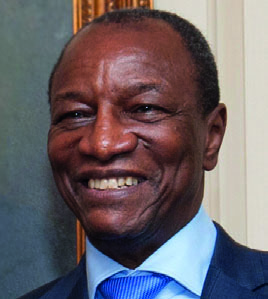
GUINEA: Alpha Condé (b 1938) attended the Sorbonne University in France and campaigned for independence from France in the 1950s. Condé ran in the 1993 and 1998 presidential elections as a candidate for the Rally of the Guinean People but lost both times against incumbent Lansana Conté. He boycotted the 2005 presidential elections, before running again and winning in 2010, becoming the first freely elected president in Guinea. He was re-elected in the 2015 elections with some opposition parties alleging irregularities.
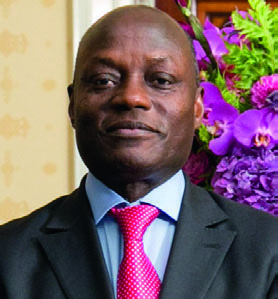
GUINEA-BISSAU: José Maria Vaz (b 1957) Trained as an economist in Lisbon. Elected mayor of Bissau in 2004. Appointed minister of finance by President Sanha in 2009. With the government, ousted in a coup d’etat in 2012. Fled to Portugal and returned in 2013, to be held under house arrest.
The coup was condemned by the AU and the west African states, which took steps to normalise the situation. Vaz was the Party for the Independence of Guinea and Cape Verde (PAIGC) candidate for 2014 presidential election. Competing in a runoff with Nuno Gomes Nabiam, a military-backed candidate, he won the second round on May 18 and was inaugurated as president on June 23, 2014. Vaz promised to reduce poverty and increase investment in agriculture.
He held out the promise of forgiveness for those involved in drug trafficking, a severe problem in the country. The AU lifted its suspension of Guinea-Bissau’s membership on 17 June 2014. Vaz has been accused of stealing €9.1 million in aid donated to the country by Angola, but he denied the charge.
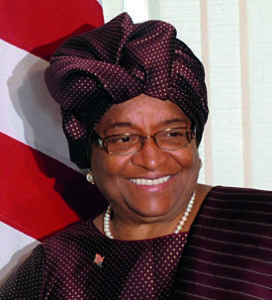
LIBERIA: Ellen Johnson Sirleaf (b 1938) is a Harvard University graduate, returned to Liberia in 1973 to work in the government of William Tolbert. After Samuel Doe mounted a coup and executed Tolbert in April 1980 she was one of few ministers spared. She accepted a post in Doe’s regime but fled to the US and worked at the World Bank in Washington.
She moved to Nairobi in 1981 and in 1985 contested elections for vice president under Jackson Doe. She supported Charles Taylor’s rebellion against Doe in 1989 but became critical of his rule. She contested the 2005 election against footballer George Weah and won in the second round, becoming the first woman to be elected an African head of state.
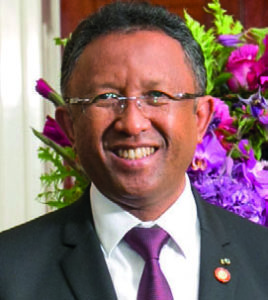
MADACASCAR: Hery Martial Rajaonarimampianina Rakotoarimanana (b 1958) was active in the institutions of Madagascar’s accounting profession before becoming Minister of Finance and Budget under President Andry Rajoelina in 2009. His entry into politics came at a time of stark tension between former president Marc Ravalomanana and Rajoelina, which resulted in clashes earlier in 2009. In 2013 Rajaonarimampianina established the New Forces for Madagascar party and competed against 32 other candidates for the presidency. He won the second round of elections, with 53.5% of the vote. He was inaugurated in May 2014.
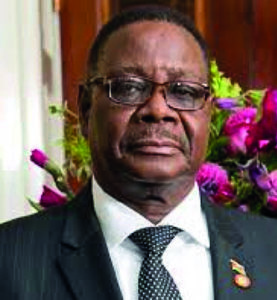
MALAWI: Peter Mutharika (b 1940) in Chisoka. Studied law at the University of London, and also studied at Yale. Taught at Dar es Salaam, Haile Selassie, Rutgers, Makerere and Washington universities. Was an advisor to his brother, president Bingu wa Mutharika, who died suddenly in 2012.
Elected to parliament and appointed to cabinet in May 2009. Contested the election in 2014 against Lazarus Chakwera and Joyce Banda. Banda alleged irregularities but Mutharika was declared the winner and sworn in as president on 31 May 2014. He appointed a reduced cabinet of 20 ministers and took on the defense portfolio. Also appointed United Democratic Front presidential candidate Atupele Muluzi as energy minister.
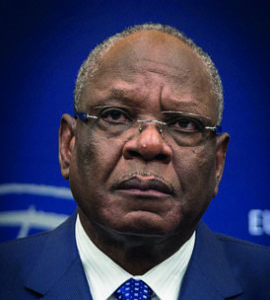
MALI: Ibrahim Boubacar Keïta (b 1945) studied in Pairs and taught in France before returning to Mali in 1986 to work as a consultant for the European Development Fund. He became an activist for the Malian Alliance for Democracy, in support of Alpha Oumar Konare’s presidential campaign in 1992.
Keita was appointed Prime Minister in 1994, remaining in the position until 2000, when he resigned. He quit and formed a party, the Rally for Mali, in June 2001. He contested two presidential elections before succeeding in the August 2013 presidential election.
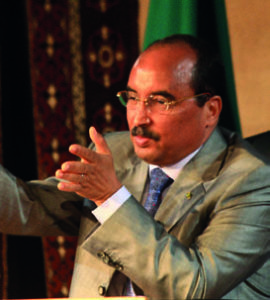
MAURITANIA: Mohamed Ould Abdel Aziz (b 1956 in Akjoujt. Attended the Royal Military Academy in Meknes, Morocco from 1977. In 2005 he was part of a group that overthrew then-president Maaouya Ould Taya. In 2007, he was appointed presidential chief of staff when President Sidi Ould Cheikh Abdallahi won elections to become the first democratically elected leader.
In 2008, Aziz led another coup and deposed Abdallahi. Won presidential elections on 18 July 2009 with an outright majority and inaugurated on 5 August 2009, though the election was boycotted by most opposition groups. Has become a key ally of the west in their battle against Islamic terrorism. Served as the 12th chairperson of the African Union from January 2014 to January 2015. Won June 2014 presidential elections and was sworn in on 2 August 2014.
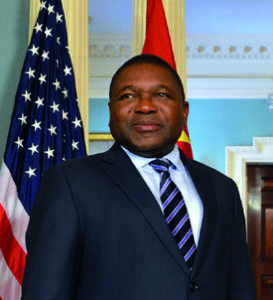
MOZAMBIQUE: Felipe Nyusi (b 1959) is the son of liberation movement veterans. He completed a mechanical engineering degree at Brno University in Czechoslovakia and postgraduate studies at Victoria University in Manchester. He worked for the Mozambique Ports and Railway Authority on his return and was appointed to its board in 2007.
Nyusi was appointed defence minister in 2008, and was elected to the Frelimo Central Committee at its 10th congress in 2012. In March 2014 he contested the election against Luisa Diogo and defeated her in the second round with 68% of the vote. He was inaugurated as the 4th president of Mozambique in January 2015.
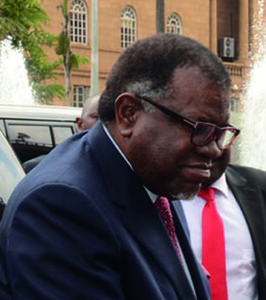
NAMIBIA: Hage Geingob (b 1941) was a teacher before going into exile to become assistant South West Africa People’s Organization (Swapo) representative in Botswana (1963–64). He was instrumental in getting Swapo recognised by the UN and was appointed its representative to the world body. Elected to organise Swapo’s election campaign for the upcoming democratic elections, he returned to Namibia on 18/6/1989, after a 27-year absence.
He was the chairman of the Constituent Assembly which adopted the Namibian Constitution on February 9 1990, and was sworn in as the first Prime Minister of Namibia on 21/3/1990. In November 2014 Geingob was elected President with an overwhelming majority of 87%, and was sworn in March 2015.
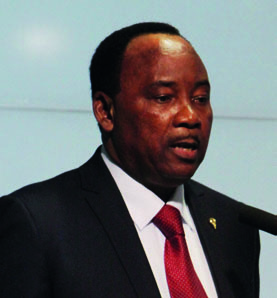
NIGER: Mahamadou Issoufou (b 1952) studied mining engineering in France in the late 1970s and returned to Niger in 1979. He served as National Director of Mines from 1980 to1985, and in 1990 he helped form the Nigerien Party for Democracy and Socialism-Tarayya. After unsuccessfully running for president in Niger’s first mult-iparty elections, he served as Prime Minister under President Mahamane Ousmane from 1993 to 1994.
He resigned in 1994 and ran for president in 1996, 1999, and 2004, each time unsuccessfully. Issoufou won the 2011 election, coming first in both rounds after other opposition parties supported him in the second round, in which he got 58%. He was re-elected in February 2016.
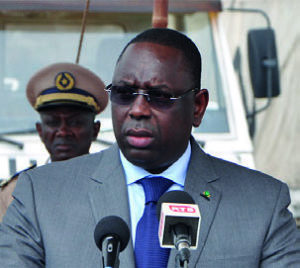
SENEGAL: Macky Sall (b 1961) in Fatick. He studied geological engineering and geophysics in Dakar, and at the French Institute of Petroleum’s National College of Petrol and Engines in Paris. He held a number of government positions, rising to president of the National Assembly in November 2008.
After falling out with President Abdoulaye Wade he formed his own party, Alliance for the Republic, and contested the 2012 presidential election against Wade and 12 other candidates, winning with 66% in the second round. His initial policies and initiatives are aimed at cutting costs, curbing corruption, state spending and restoring Senegal’s diplomatic role in Africa.
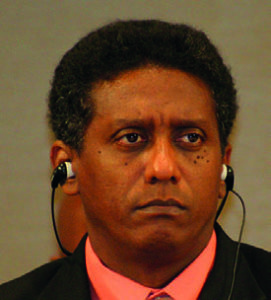
SEYCHELLES: Danny Faure (b 1962) in Kilembe, Uganda. Completed his schooling in Seychelles and studied political science in Cuba. He later worked as the assistant curriculum officer at the Seychelles education ministry and as a lecturer for the National Youth Service and the Seychelles Polytechnic.
He was minister of education in 2001 and minister of finance in 2006, overseeing economic reforms recommended by the International Monetary Fund. He was appointed vice president in July 2010, while retaining the finance portfolio and elected president in September 2016.
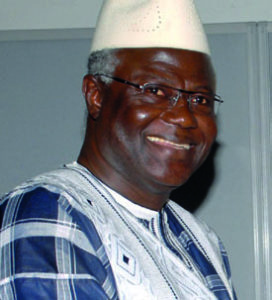
SIERRA LEONE: Ernest Bai Koroma (b 1953) in Makeni. He attended school in Magburaka and graduated from Fourah Bay College in Freetown in 1976. He worked in the insurance industry for 24 years before going into politics in 2002 as an MP for his home District of Bombali from 2002 to 2007.
In 2005, he became minority leader of parliament until his election to the presidency in 2007. His policies have focused on free market policies, attracting private investment and public sector reform. Re-elected in 2012, he hinted at a third term but outraged opposition parties and international donors quashed the idea.
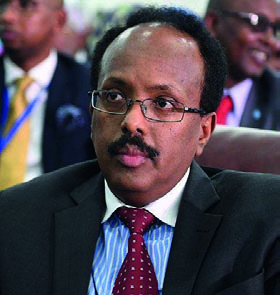
SOMALIA: Mohamed Abdullahi Mohamed (b 1962) in Mogadishu. His parents were members of the Somali Youth League, the country’s first political party. Completed a Master’s in political science in New York in 2009. Worked at the ministry of foreign affairs before the federal government collapsed in 1991 and civil war ensued.
Worked between 1985 and 1988 as the first secretary at the Somali embassy in Washington. Appointed prime minister of Somalia in October 2010. Appointed a technocratic cabinet, half its previous size. The new administration made some gains in the civil war, was forced him to resign. Stood for election in 2012 but lost. Won the 2017 election and was sworn in on 16 February 2017.
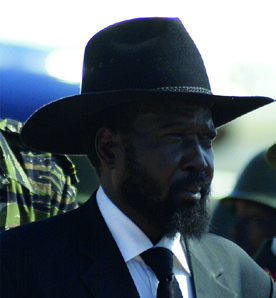
SOUTH SUDAN: Salva Kiir Mayardit (b 1951) in Bahr el Ghazel Myardit. Joined the Anya Nya, a southern separatist movement, during the first of the two Sudan civil wars (1955–72). He was made a lieutenant colonel after being absorbed into the Sudan army. With John Garang he formed the Sudan People’s Liberation Army (SPLA) and Movement (SPLM), and was a key negotiator for the 2005 Comprehensive Peace Agreement with the government, ending Sudan’s second civil war.In a January 2011 referendum, the people of the south voted to become an independent country. The new country came into being on 9 July 2011, with Kiir as first president.
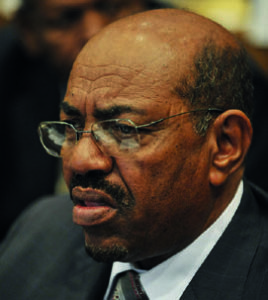
SUDAN: Omar al Bashir (b 1944) in Hosh. He attended school in Khartoum, and trained at a military college in Cairo. He fought in the 1973 Egyptian war against Israel. After returning to Sudan he took a leading role against the secessionist Sudan People’s Liberation Army and led a coup against Sadiq al Mahdi in 1989 and took power.
He limited democracy, dissolved parliament, banned political parties, curtailed the press and introduced Islamic law (shariah) in March 1991. Two million people were displaced in a conflict with Black African rebels in Darfur. The International Criminal Court issued an arrest warrant for Al Bashir on charges of crimes against humanity and genocide in Darfur in March 2009.
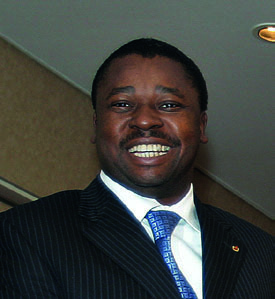
TOGO: Faure Gnassingbé (b 1966). His father, Gnassingbé Eyadéma, seized power when he was a year old. Studied economics and international relations in Paris and earned an MBA in Washington, US. Groomed to succeed his father, he became an MP in 2002. Appointed minister of telecommunications, mines, and equipment.
Installed by the military as president in February 2005 after his father died. Won a new election in April, installed as president on 5 May. After winning the 2010 election, he dissolved the RPT and formed the Union for the Republic (UNIR), which became the ruling party. In 2014 legislation limiting presidential terms was changed. Gnassingbé won April 2015 elections as the UNIR candidate with 59% of the vote.
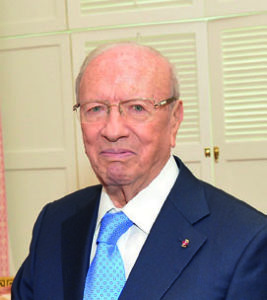
TUNISIA: Beji Caid Essebsi (b 1926) studied law in Paris and began working as a lawyer in 1952. Advisor to President Habib Bourguiba after Tunisia won its independence from France in 1956. Held various cabinet roles between 1963 and 1991, but retired from politics.
Appointed prime minister of the transitional government in 2011 after Prime Minister Mohamed Ghannouchi resigned. His party, Nidaa Tounes (Call of Tunisia) lost to the Islamist Ennahda party in elections in December 2011. Nidaa Tounes defeated Ennahda in 2014; Essebsi was sworn in as president on 31 December 2014. In March and June 2015, Islamic State claimed responsibility for two attacks on tourists in the country. Essebsi declared a state of emergency after the June attack.
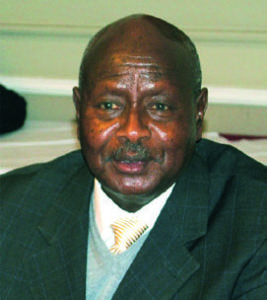
UGANDA: Yoweri Museveni (b 1944) earned a BA in political science and economics at the University of Dar es Salaam in Tanzania in 1970. Founded the Front for National Salvation, which helped overthrow Amin in 1979. Stood for election in 1980, but lost to Milton Obote. Formed the National Resistance Movement (NRM) with former president Yusuf Lule and waged a guerrilla war against Obote. After the NRM won, Museveni declared himself president on 26 January 1986.
He introduced programmes to combat AIDS, with success. Elected president in May 1996. Has faced criticism for the conduct of his armies in regional wars. Chair of the Organisation of African Unity in 1991. Re-elected in 2001. Abolished term limits, and won elections in 2006, 2011 and 2016, most regarded as problematic.
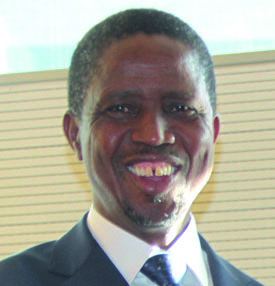
ZAMBIA: Edgar Lungu (b 1956) studied law at the University of Zambia and worked as a lawyer in Lusaka. Did military national service in Kabwe before returning to practice law. His licence to practice law was suspended in 2010 after he was found guilty of professional misconduct. Joined Michael Sata’s Patriotic Front (PF), which won the 2011 election.
Served as junior minister in the vice president’s office and as home affairs minister. Appointed minister of defence in December 2013 and acting president when Sata fell ill. Contested and won the presidential by-election in January 2015; sworn in on 25 January 2015. Critics say he has hounded the press to shield the ruling party from criticism. In August 2016, he again defeated Hakainde Hichilema for the presidency.
Yunus Momoniat is a researcher and writer at South African History Online and an occasional political commentator.


